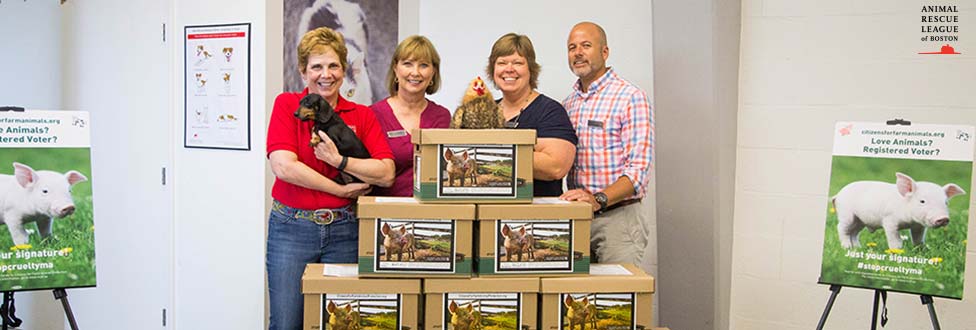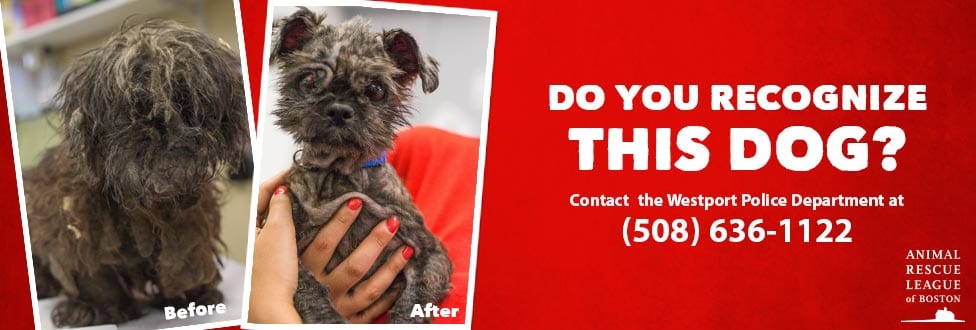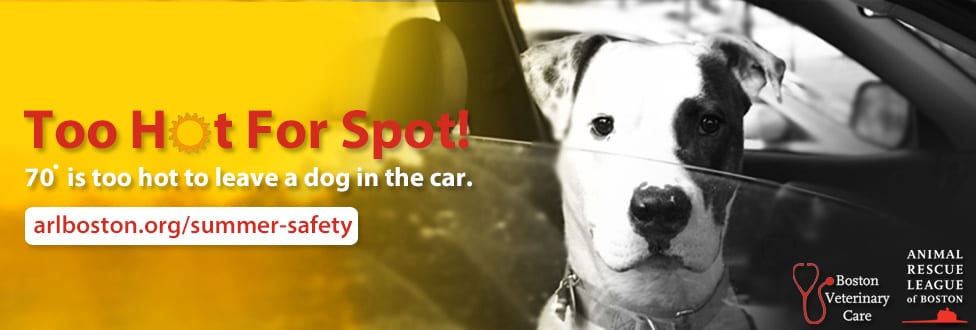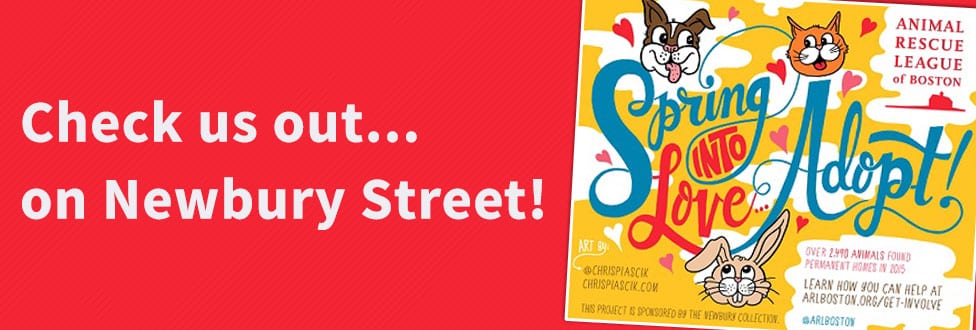ARL Urges Passage of Animal Welfare Legislation
Take action to help pass S. 2369 An Act to Prevent Animal Suffering and Death
With summer temperatures on the rise it is imperative that Massachusetts State pass S. 2369 An Act to Prevent Animal Suffering and Death.
While it is crucial to educate pet owners about the real dangers of leaving their animals in vehicles, it is also important to have common sense laws on the books to help prevent the suffering of animals.
This bill would be the first law in Massachusetts that addresses the real dangers of leaving animals in vulnerable situations, and especially during extreme weather conditions.
 ARL’s Too Hot for Spot® educational campaign clearly shows the extremely short period of time it takes for a vehicle to heat up even with windows slightly open. Unfortunately, some pet owners still leave their animals in their vehicles.
ARL’s Too Hot for Spot® educational campaign clearly shows the extremely short period of time it takes for a vehicle to heat up even with windows slightly open. Unfortunately, some pet owners still leave their animals in their vehicles.
S. 2369 An Act to Prevent Animal Suffering and Death will allow for earlier intervention by law enforcement and other governmental agencies as well as by individuals in extreme cases.
This law will not only prevent the death of animals but also protect owners from potential animal cruelty charges. It will also be a reminder to all that extreme temperatures are dangerous for animals.
S. 2369 empowers those that see dangerous situations for animals to intervene earlier to prevent suffering and even death.
In addition to removing animals from vehicles this bill also provides much needed clarity with respect to tethering of dogs. These amendments will ensure that dogs do not end up living on chains and left outside for long periods of time, especially in extreme weather conditions.
The ARL urges swift passage of S. 2369 An Act to Prevent Animal Suffering and Death… and YOU can help!
Please contact your Massachusetts State Representative and ask them to pass S. 2369 An Act to Prevent Animal Suffering and Death.




 Creates a new law to address pets in vehicles – This will be familiar to all who are aware of ARL’s
Creates a new law to address pets in vehicles – This will be familiar to all who are aware of ARL’s  (S. 2370) – “An Act Relative to Protecting Puppies and Kittens”
(S. 2370) – “An Act Relative to Protecting Puppies and Kittens”  (S. 2375) – An Act protecting abandoned animals in vacant properties
(S. 2375) – An Act protecting abandoned animals in vacant properties 












